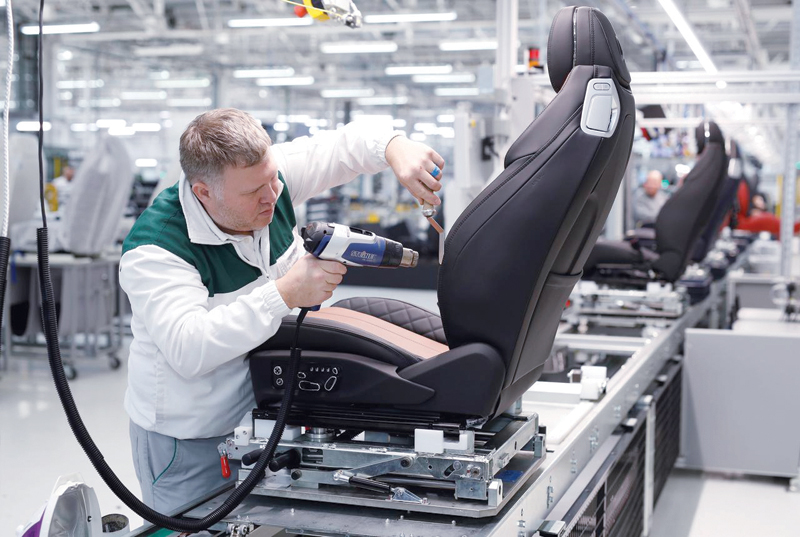

LONDON: The global impact of coronavirus is starting to weigh on a post-election recovery in Britain’s manufacturing sector as factories reported a big jump in delays in their supply chains, a survey showed on Monday.
The IHS Markit/CIPS purchasing managers’ index (PMI) rose to 51.7 from the no-change level of 50.0 in January.
That was its highest since April but slightly weaker than February’s “flash” reading of 51.9.
Rob Dobson, a director at IHS Markit, said Britain’s manufacturers were still in recovery mode after Prime Minister Boris Johnson’s national election win in December, which lifted some of the uncertainty hanging over the country’s economy.
New orders grew at the fastest pace in 11 months and business optimism hit a nine-month high.
But Dobson pointed to clouds on the horizon from the spreading coronavirus.
“Supply-chain disruptions were emerging rapidly... as the COVID-19 outbreak led to a substantial lengthening of supplier lead times, raw material shortages, reduced inventories of inputs, rising input costs and reduced export orders from Asia and China in particular,” he said.
Coronavirus — which has prompted authorities in China to shutter entire cities — plus the impact of flooding in Britain led to the biggest drop in supplier delivery times in the 28-year history of the survey.
Companies used up their stocks, which pushed down inventories at the fastest rate in over seven years while shortages of some raw materials led to price increases, part of which was passed on to clients.
Furthermore, some firms said foreign clients were moving supply chains away from Britain after its departure from the European Union on January 31.
A continued downturn in demand for investment goods, which are used to produce other goods, suggested business confidence levels have yet to recover sufficiently to support a sustained rise in capital spending, Dobson said.
“With supply-chain headwinds rising, and trade negotiations with the EU starting, it remains to be seen whether the recovery can stay on course during the coming months,” he said.
Manufacturing accounts for around 10 per cent of Britain’s economic output, according to official data, although many analysts say that does not take into account the increasingly blurred line between the services and manufacturing sectors. — Reuters
Oman Observer is now on the WhatsApp channel. Click here



